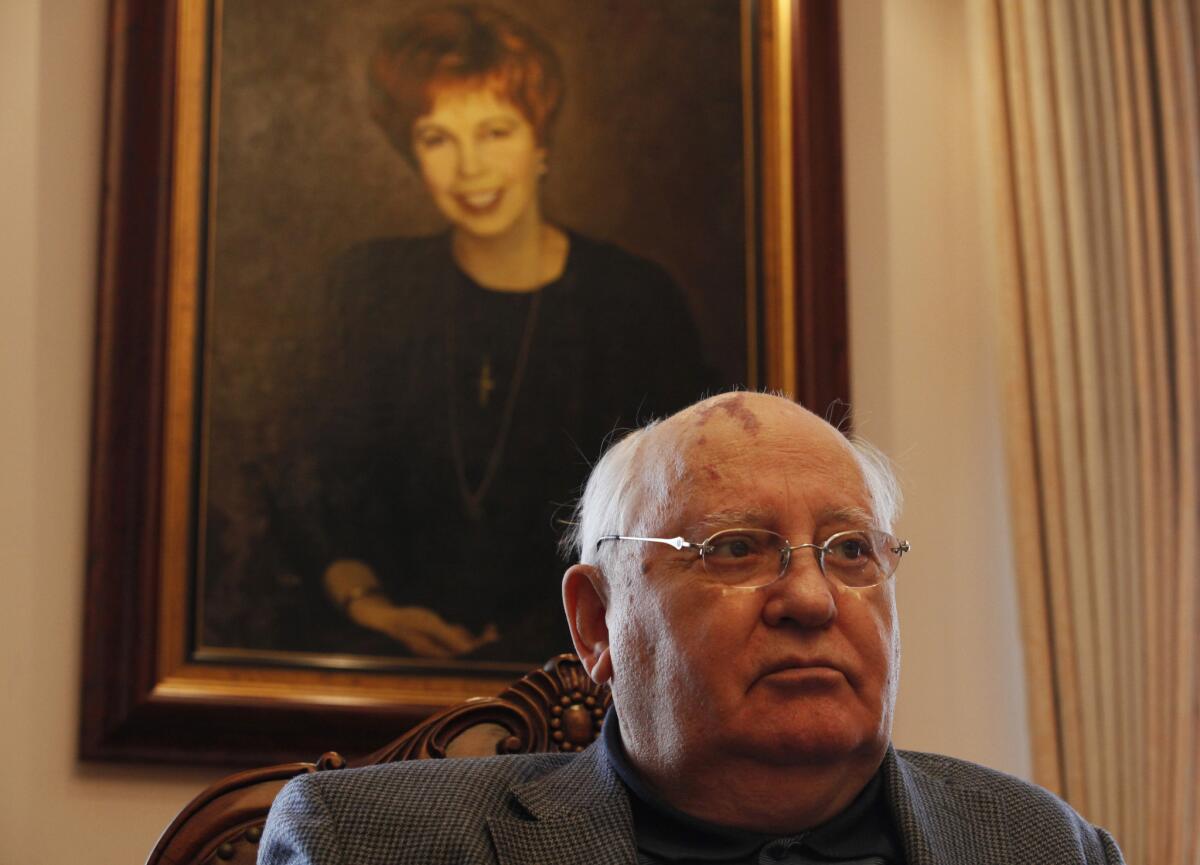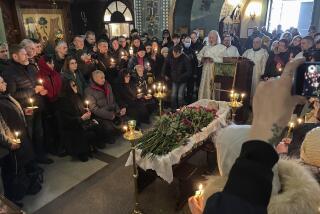Ailing ex-Soviet leader Gorbachev says he is in fight for his life

Mikhail S. Gorbachev, the last leader of the Soviet Union and architect of reforms that led to the downfall of that country’s one-party rule, was released from the hospital Friday after an “aggravation” of his acute diabetes, but he told Russian media he remains in a struggle against deteriorating health.
The 83-year-old former Communist Party leader was rushed to a Moscow hospital Thursday after a weeklong decline and spent the night “lying down under a monitor, all covered with wires,” he told Russian News Service radio.
His condition caused him to miss this week’s series of Nobel Prize awards, Gorbachev complained, including Friday’s announcement that the peace prize had been bestowed on Pakistani schoolgirl and education advocate Malala Yousafzai and an Indian champion of children’s rights, Kailash Satyarthi.
Gorbachev was awarded the Nobel Peace Prize in 1990 for his role in shepherding Eastern Europe out of totalitarian rule and the reform policies that helped bring down the ideological Iron Curtain that divided postwar Europe.
Asked how he was feeling when he showed up at his office at the Gorbachev Foundation charities he oversees, Gorbachev told RIA Novosti that to say he felt well “would be an overstatement.”
Russia’s Interfax news agency quoted Gorbachev as saying his health has been on a long downward trajectory but that he was “fighting for my life.”
Pavel Palazhchenko, director of international relations for the Gorbachev Foundation, told a journalist from Russia Beyond the Headlines that Gorbachev hoped to recover in time to travel to Berlin next month for celebrations tied to the 25th anniversary of the fall of the Berlin Wall on Nov. 9, 1989.
Gorbachev’s health has kept him out of the public eye in recent years and prevented his attendance at foreign events such as the funeral last year of former British Prime Minister Margaret Thatcher and the July burial in Tbilisi, Georgia, of his Soviet-era foreign minister, Eduard Shevardnadze.
He hasn’t been politically active for more than a decade but he has expressed his concerns about Russian President Vladimir Putin’s restrictions of free speech and the use of state security services to monitor and repress political opponents. Gorbachev has also been critical of President Obama, saying the U.S. leader has fanned the flames of discord in Europe.
Gorbachev’s Western partner in the political events that led to the 1990 reunification of Germany, former German Chancellor Helmut Kohl, has also been in the news this week. Kohl, 84, appeared at the Frankfurt Book Fair on Wednesday to sign copies of a new edition of his memoirs. Kohl was nominated again this year for the Nobel Peace Prize for his role in the peaceful pro-democracy movements that ended four decades of European divide.
Follow @cjwilliamslat for the latest international news 24/7
More to Read
Start your day right
Sign up for Essential California for news, features and recommendations from the L.A. Times and beyond in your inbox six days a week.
You may occasionally receive promotional content from the Los Angeles Times.







